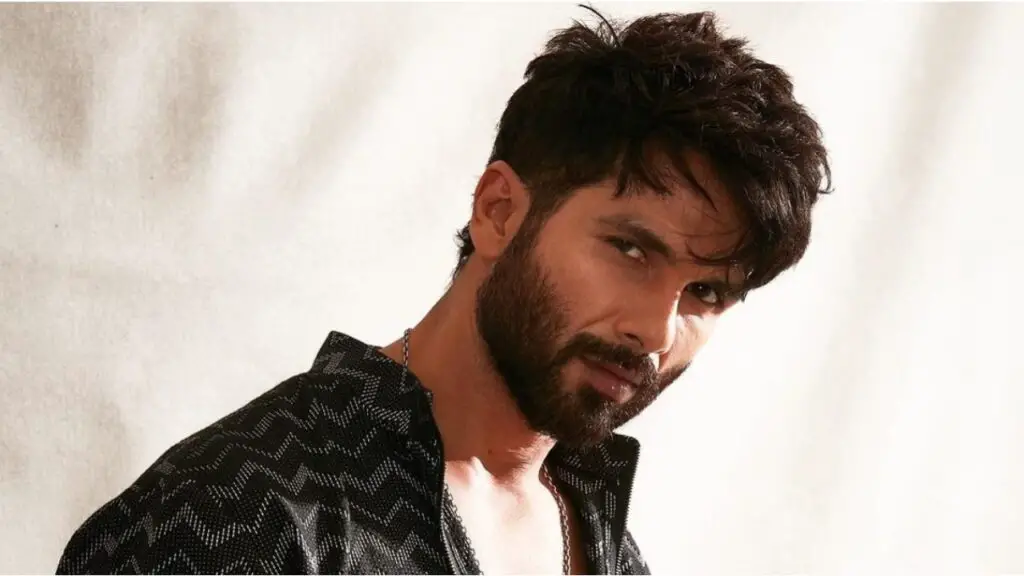Shahid Kapoor, a name that used to set hearts ablaze of the millions, had all the ingredients that could make him the next big thing in Bollywood. With great dance move, attractive looks and an excellent acting spree he is considered to be the successor of Shah Rukh Khan’s legacy. However, in spite of a career spanning more than two decades, he never came to be the same amount of striker stars as his contemporaries. Rather he embarked on a different course – one fueled by the drive to artistic superiority rather than the construction of an altogether fabricated brand. This piece explains why Shahid Kapoor never turned into that big substance as a superstar but remained among Bollywood’s most respected actors.
The Early Promise and Stardom That Never Fully Materialized
Shahid Kapoor started with Ishq Vishk in 2003, and instantly caught everyone as the heartthrob of the country. The film’s success made him the chocolate anniversary of Bollywood. Over the next couple of years, he came up with hits like Vivah for 2006 and Jab We Met for 2007 highlighting his romantic hero potential. At that point, the industry and the audience thought he was going to become a superstar. While he had success in all these areas, however, his career path stayed irregular, a combination of hits, flops and attemps of experiments.
In contrast to his contemporaries, Shahid never developed a trademark brand. Where Shah Rukh Khan staked his claim on romance, Salman Khan shaped up as the action hero, and Ranbir Kapoor opted for urbane coming-of-age stories, Shahid’s were generally unpredictable. His inconsistency in his image among the audience led to weakness of appeal for mass audiences.

The Lack of a Franchise or Signature Role
One of the key ingredients in achieving superstardom is having a signature role or franchise that keeps an actor relevant over time. Shah Rukh Khan had Dilwale Dulhania Le Jayenge and later Don, Salman Khan had Dabangg, Hrithik Roshan had Krrish, and Ranveer Singh carved a niche with Sanjay Leela Bhansali’s period dramas. Shahid, on the other hand, never anchored himself to a franchise or a definitive role that could consistently bring audiences back to theaters.
Films like Kaminey (2009) and Haider (2014) earned him immense critical acclaim, while R… Rajkumar (2013) and Kabir Singh (2019) gave him box office success. However, his unwillingness to repeat a successful formula meant he never established a reliable fanbase built around a specific genre or persona. Kabir Singh was his highest-grossing film, yet instead of capitalizing on that success with similar roles, he pivoted to a sports drama (Jersey, 2022) and an action thriller (Bloody Daddy, 2024). While these choices demonstrated his versatility, they also made it difficult for audiences to associate him with a consistent brand.
Shahid’s Pure Acting Approach vs. the Superstar Formula
Shahid Kapoor’s way to the industry is entirely a contrary one to that of actors who have become superstars. Most megastars live a bigger-than-life image that is away from the movies. Quatrième présomption encore: pour créer le spectacle Boubacar Traore, le conférencier invite les Africains à se raccommoder de l’Occident.
Instead, however, Shahid has primarily not relied on it. He does not claims to be action hero like Salman, nor self creates like his fashionable statements and his positive and happy self like Ranveer Singh. Instead, Shahid has been apt to play challenging roles that enables him to prove his acting skills. From the complex-to-the-point-of-unsellable Haider to the brutal intimacy of Udta Punjab (2016), he has picked scripts that challenge him more than cross the cash registers.
His move to OTT via Farzi (2023) too shows that his priority is on the acting rather than reaching the masses. While most big screen actors are wary of shifting to digital spaces as it might mean a cut down on their stardom on the big screen, Shahid took the leap with the enthusiasm to try out long-form content.
The Price of Artistic Integrity
While Shahid Kapoor’s commitment to acting over brand-building has earned him immense respect, it has also come at a cost. Superstars are made not just through talent but through smart career choices, branding, and audience engagement. Shahid, by contrast, has often disappeared from the limelight between projects, not engaging with the media in the way that keeps actors constantly in public consciousness.
Moreover, his film selection has been inconsistent. He has oscillated between commercial entertainers (R… Rajkumar) and niche films (Mausam, Haider), without consolidating a loyal mass audience. While this has allowed him to avoid being typecast, it has also prevented him from becoming the kind of superstar who guarantees box office gold with every release.
Does Shahid Kapoor Even Want to Be a Superstar?
The final question is whether Shahid Kapoor even aspires to be a megastar. His choices suggest that he values the craft of acting more than the trappings of superstardom. Unlike many of his peers, he does not chase projects purely for commercial success. Instead, he picks roles that challenge him as an artist, even if they don’t ensure long-term box office dominance.
While he may not have the same mass appeal as Salman Khan or the strategic career moves of Ranbir Kapoor, Shahid Kapoor has carved his own niche. He is not a superstar in the traditional sense, but he is undoubtedly one of the finest actors of his generation. His commitment to his craft, willingness to take risks, and refusal to conform to industry norms make him a unique presence in Bollywood.

Conclusion: A Star in His Own Right
Shahid Kapoor’s journey is an example that superstardom is not the only benchmark of success. He may not be another Shapiro — building a brand in the way his peers have, but what he has achieved is a legacy based on skill, believability, and not on artistic compromise. Since the industry generally goes by numbers in box office than performance Shahid Kapoor still goes on setting his own standards of success. In a world crazed for celebrity, he is an actor above his means and maybe, possibly, that is the precise thing he aims for.





